Роберт Бюттнер - Orphan's Journey
Здесь есть возможность читать онлайн «Роберт Бюттнер - Orphan's Journey» весь текст электронной книги совершенно бесплатно (целиком полную версию без сокращений). В некоторых случаях можно слушать аудио, скачать через торрент в формате fb2 и присутствует краткое содержание. Жанр: Боевая фантастика, на английском языке. Описание произведения, (предисловие) а так же отзывы посетителей доступны на портале библиотеки ЛибКат.
- Название:Orphan's Journey
- Автор:
- Жанр:
- Год:неизвестен
- ISBN:нет данных
- Рейтинг книги:3 / 5. Голосов: 1
-
Избранное:Добавить в избранное
- Отзывы:
-
Ваша оценка:
- 60
- 1
- 2
- 3
- 4
- 5
Orphan's Journey: краткое содержание, описание и аннотация
Предлагаем к чтению аннотацию, описание, краткое содержание или предисловие (зависит от того, что написал сам автор книги «Orphan's Journey»). Если вы не нашли необходимую информацию о книге — напишите в комментариях, мы постараемся отыскать её.
Orphan's Journey — читать онлайн бесплатно полную книгу (весь текст) целиком
Ниже представлен текст книги, разбитый по страницам. Система сохранения места последней прочитанной страницы, позволяет с удобством читать онлайн бесплатно книгу «Orphan's Journey», без необходимости каждый раз заново искать на чём Вы остановились. Поставьте закладку, и сможете в любой момент перейти на страницу, на которой закончили чтение.
Интервал:
Закладка:
Meanwhile, the Scouts had wheeled, returned, and stormed the Troll and the Firewitch.
My helmet radio sang. “Eagle, this is Falcon, over.”
I smiled. “Eagle here, Falcon.” What the hell. There was nobody left to eavesdrop. I spoke in the clear. “Well done, Sergeant Major. My compliments to Casus.”
“You’ll be able to deliver them yourself in a few minutes, Sir.”
Twenty minutes later, the ground shook as Casus, on his white stallion, rode into view at the head of his cavalry. Rifles cracked no more often than the last kernels in a popcorn popper, mopping up the last Slugs.
High atop the Troll, Scouts crawled out through the tops of the ventilators like summiting mountaineers. They shouted, took off their tunics, and swung them above their heads to announce victory. One of the figures waved a crimson Eternad breastplate.
Howard radioed. “We captured the Stone freighter, too! Jason, we have a way home, again!”
I blinked back tears. We had a ship. But we didn’t have my godson to pilot it.
Ord rode up, dismounted, and saluted. I returned his salute, as we looked around the battlefield.
In the acrid black-powder fog, infantrymen searched for wandering comrades that had become lost in battle, found them too seldom, and hugged them. Others bent forward, searching among the corpses, peering into cold faces, and found their comrades too often.
I cleared my rifle, then slung it across my shoulder. “Eisenhower was right. There’s no glory in battle worth the blood it costs.”
“But blood buys more than glory, Sir.”
The thousands of slaves stared wordlessly at all that swirled around them, as blank as newborns. They might never become more. But blood had bought them a chance.
The recent captives from the battle of the Great Fair wept, hugged one another, and hugged the soldiers that had freed them, regardless of Clan. The Clans had shed their blood together, and that bought them the chance to stop shedding it separately.
In the crowds, the soldiers the Slugs had captured during our campaign were easy to distinguish from the liberators. The freed captives wore only occasional scraps of uniform or armor.
“None of it changes what Wellington said.” I remembered it after every battle, and I cried.
Ord said, “Sir?”
I raised my visor, and wiped my eyes. “There is nothing so melancholy as a battle lost, except a battle won.”
Far down the ragged rows of pale slaves, one pale, naked figure stood, taller than the others, and waved an object at me.
I blinked away the blur of my tears, and stared. Then I ran forward.
The pale, thin figure dropped the crimson breastplate he had waved, then Jude ran toward me, too.
SEVENTY-THREE
I STAND AT PARADE REST on the lecture hall stage, and stare out across three thousand young faces, all eyes staring up at me. The Cadets’ uniforms are gray, impeccable, and indistinguishable one from another. The faces, however, are brown, white, and yellow, male and female. Tattoos curl around some faces, jewels dangle from others. They are badges of their human homeworlds, each spawned, and once ruled by, the Pseudocephalopod Hegemony. Some of those worlds I fought to free from the Hegemony. Some I fought to keep in the Union. The names of some I can barely pronounce.
The Commandant stands to my right, then gives me a wink. She’s an old friend. Well, more than a friend.
She grips the podium, and her words to her Cadets echo off the arched ’lume ceiling. “I’ll keep the intro brief. I know you don’t want Assembly to run long. That could shorten morning PT.”
Three thousand throats boom a chuckle off the ceiling. Then silence returns.
The ceiling ’lume dims, and a quote fades in on the flatscreen wall behind the Commandant. She turns, then reads aloud:
Terracentric it may be to refer to “The Pseudocephalopod War,” much less to date its onset from “2037.” However, all history pivoted on those events in the Spiral Arm, as undeniably as conventional space folds around every Ultradwarf at every temporal fabric insertion point. Students of that time and place will find no truer account than in the warrior’s-eye view of Jason Wander.
— Chronicles of the Galaxy, The Mobian Transliteration, Volume XXIII
The Commandant turns back to the Corps of Cadets. “Today’s topic is a retrospective on the campaign for the liberation of Bren.” She takes a seat in the audience, leaving me alone center stage.
I step alongside the chair placed there for me. My legs ache all the time, these days. So does every other part that the Slugs and the calendar have forced the Army to rebuild.
But I frown down at the chair, and say to the audience, “Everybody provides one of these for me, these days. Deference to rank, or age, I suppose. But infantry doesn’t sit.”
Whoops and pumped fists erupt from the back rows, where the lousy students stand. When the Cadet Corps draws for Post-Grad assignments, the top students will snatch the glam slots, like Flight School and Astrogation. The back row will become infantry Lieutenants. It’s natural selection, I guess. Infantry gets the sharp, dirty end of the stick from the beginning, so it learns to laugh about it.
I smile, and pump my fist back at them. Where they’re going, they’ll need their sense of humor.
I clear my throat.
PalmTalkers swivel up alongside whispering lips. Personal ’Puter keyboards unfold in hands. A few kids snatch pterosaur-quill pens and sheets of flat paper from hiding places beneath stiff shirt fronts. Different cultures, different study habits.
I wave the devices away. “No notes. You get enough Logistics and Tactics at the Puzzle Factory next door.”
Laughter.
I say, “Bren wasn’t liberated by so-called military genius.”
A kid in back raises his hand. “Then why do our chips teach the Bren campaign, Sir?” He knows the answer. Every kid in the Union does. He’s just stretching the lecture.
But I answer like they don’t know. “Because it turned the tide of this war. We flew the transport we captured back to Earth, used that ship’s power plant for a template, used Bren’s Cavorite for fuel, and built the fleets that liberated, then unified, the planets of the Union. My meaning was that wars are won by soldiers sacrificing for other soldiers. And by trial and blunder. And by which side got stuck in the mud least. And by commanders who learned to lead effectively while engulfed by chaos, and lunacy, and their own heartbreak.”
Twenty minutes later, I take questions. The kids know the current Commandant wants cadets to speak their minds. I point at the raised hand of a shave-headed kid with indigo-dyed eyebrows.
She stands as straight and as hard as a Casuni broadsword and asks, “Sir, our poli sci chips say the real liberation of Bren only came years later, when Bassin the First, Casus, and the Council of Headmen signed the Treaty of Marinus and ended slavery on Bren.”
I nod. “They’re right. The uncivil ‘peace’ among the Clans that followed the Expulsion of the Pseudocephalopod Hegemony killed more Marini, Casuni, and Tassini than the Slugs did.”
With those indigo eyebrows, she’s Tassini. Probably second-generation emancipated. I’m guessing she’s asking a rhetorical question, designed to educate those of her classmates to whom slavery is just a word. If it hadn’t been for the changes that started on Bren with the Expulsion of the Slugs, she’d be bending over some landowner’s plow or washtub today, like her grandparents did. Thanks to Emancipation, she’s traveled to the stars, here to the Motherworld, where she’s learning things like Astrogation and Comparative Lit.
She asks, “You agree with the chips that say the war was wrong, then?”
Читать дальшеИнтервал:
Закладка:
Похожие книги на «Orphan's Journey»
Представляем Вашему вниманию похожие книги на «Orphan's Journey» списком для выбора. Мы отобрали схожую по названию и смыслу литературу в надежде предоставить читателям больше вариантов отыскать новые, интересные, ещё непрочитанные произведения.
Обсуждение, отзывы о книге «Orphan's Journey» и просто собственные мнения читателей. Оставьте ваши комментарии, напишите, что Вы думаете о произведении, его смысле или главных героях. Укажите что конкретно понравилось, а что нет, и почему Вы так считаете.

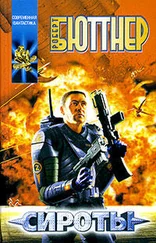

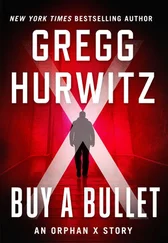
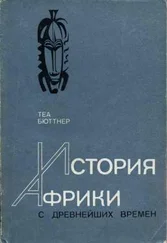

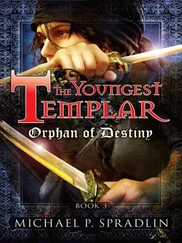
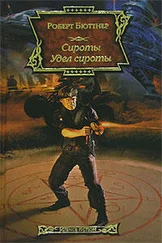
![Дэн Бюттнер - Где живет счастье [Правила жизни самых счастливых людей планеты] [litres]](/books/395574/den-byuttner-gde-zhivet-schaste-pravila-zhizni-samyh-thumb.webp)


